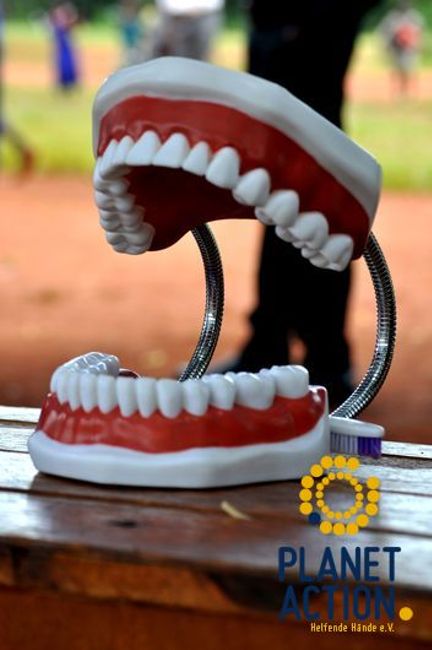
zahnismalawi2018
vakantio.de/zahnismalawi2018
Day 6-8 (Friday to Sunday)
Wɔatintim: 13.08.2018
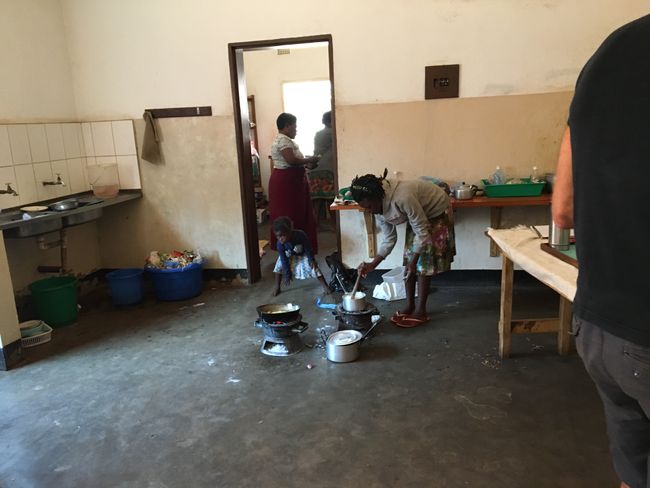
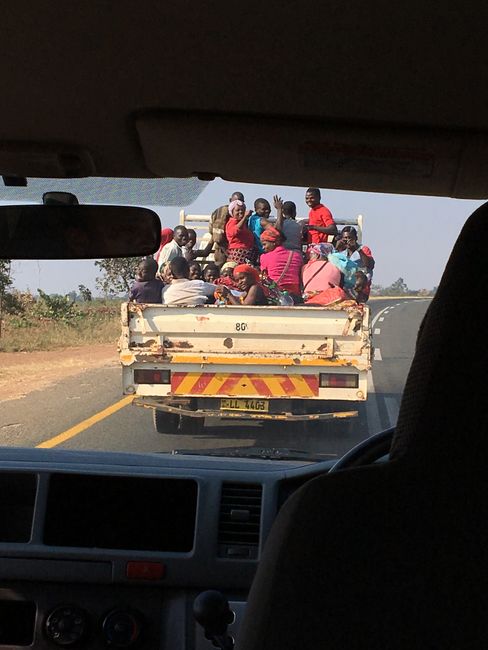
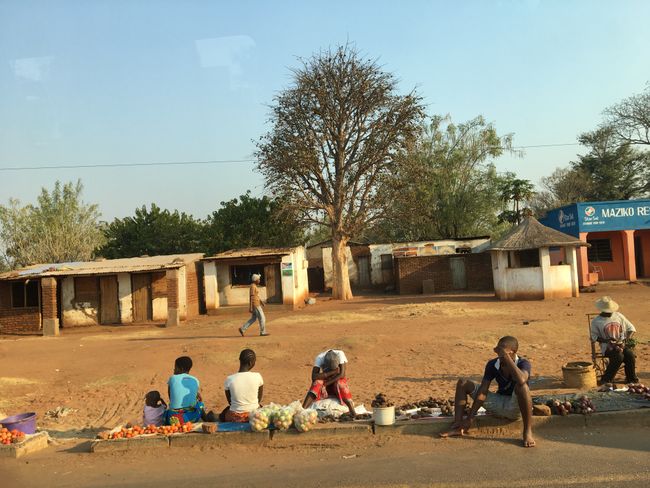
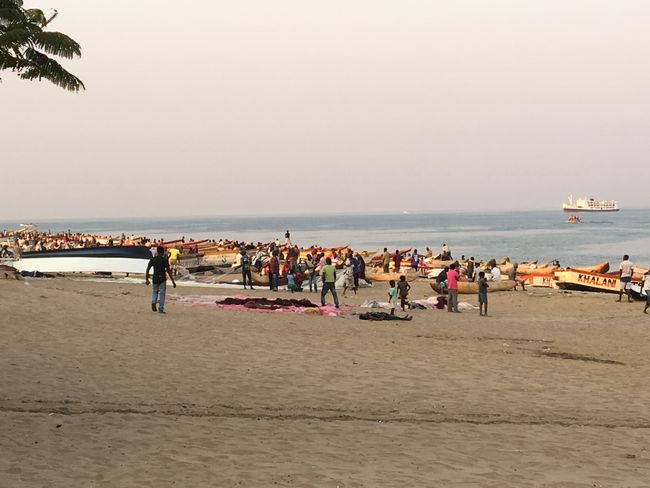
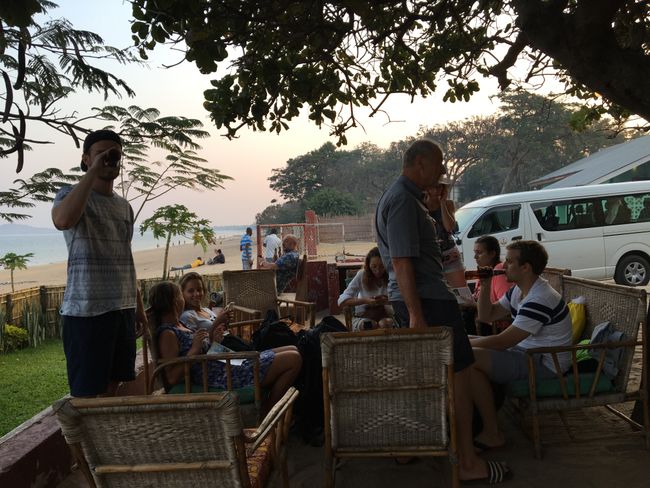
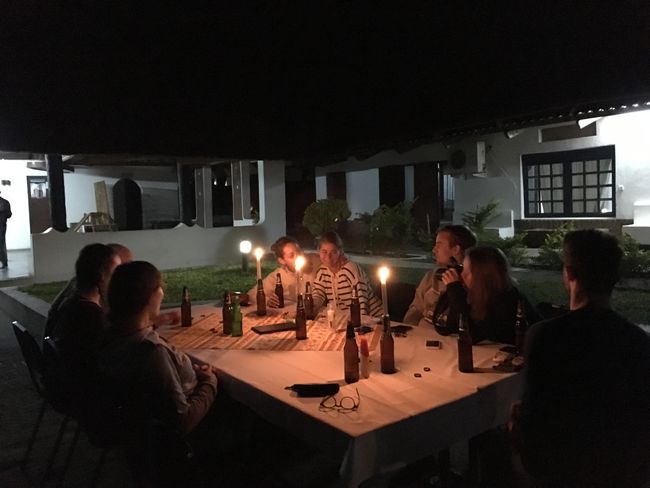
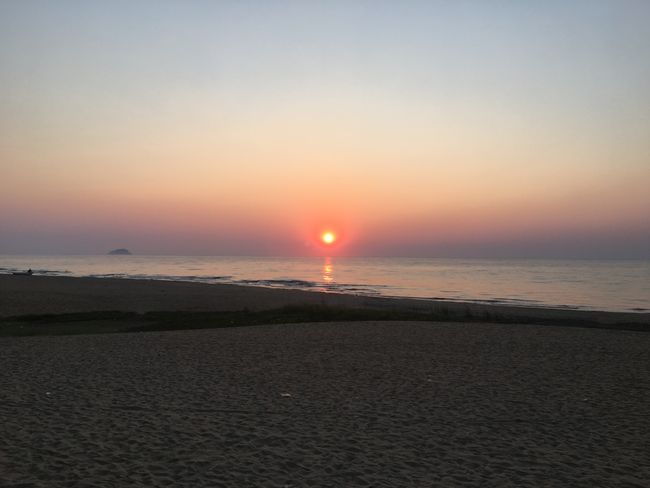
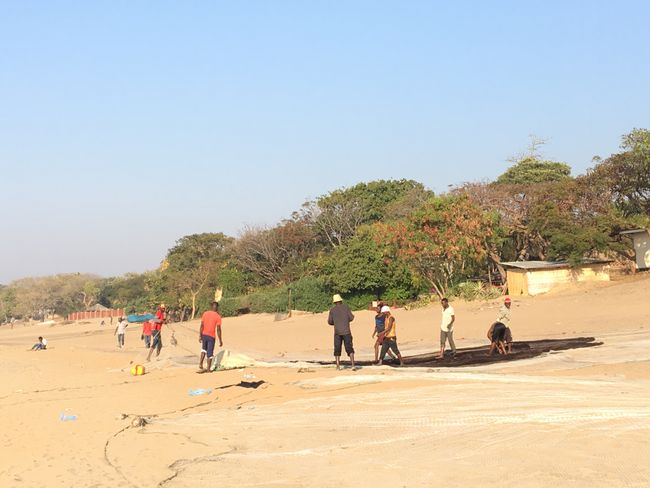
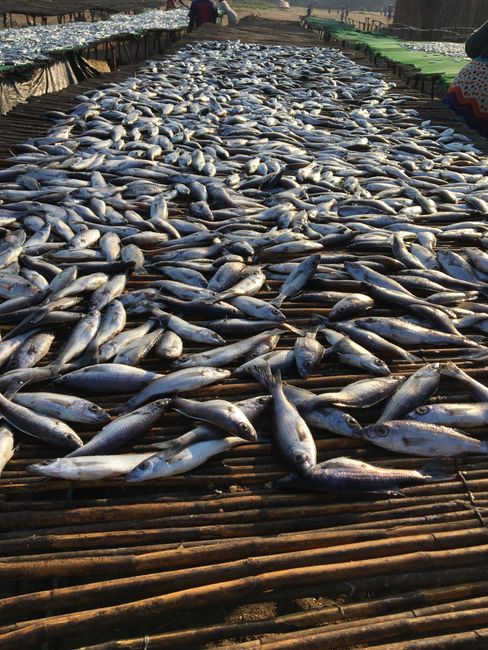
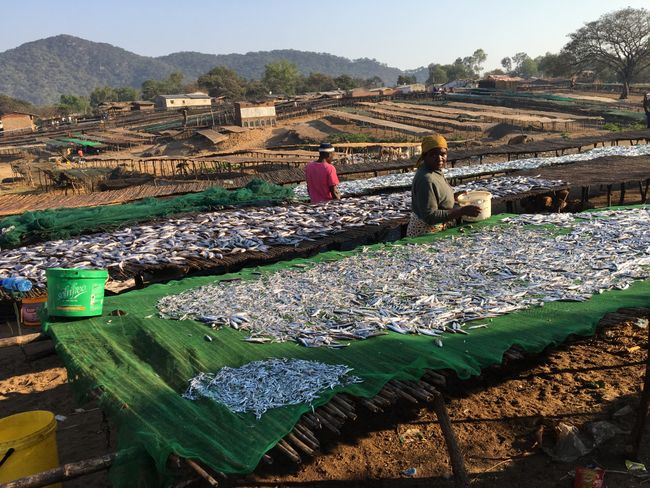
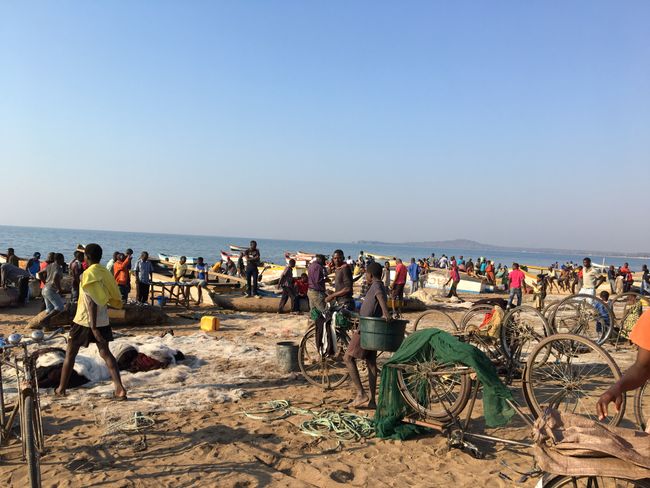
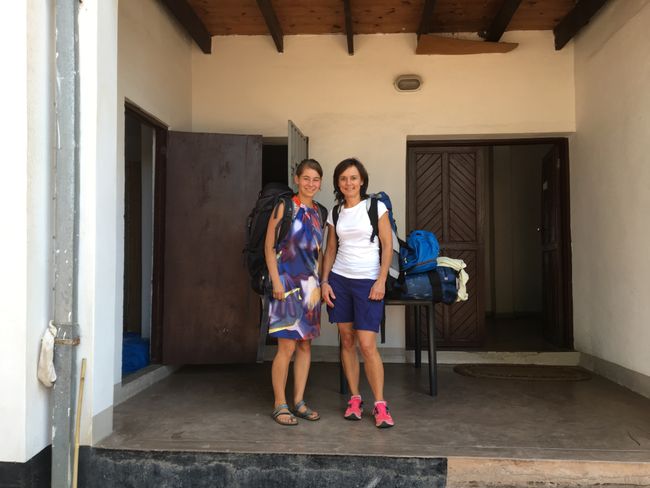
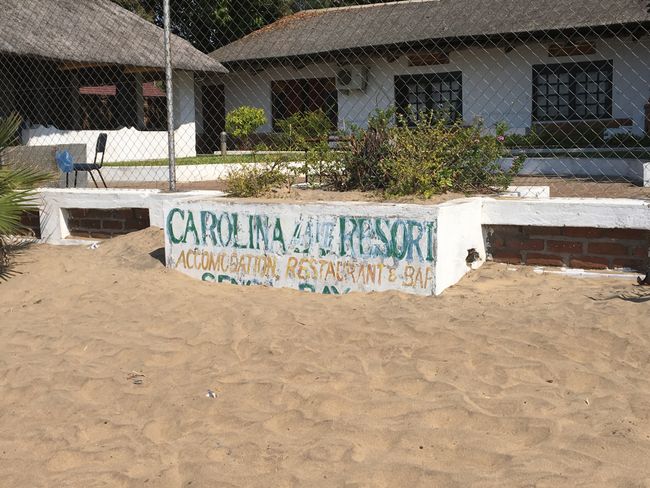
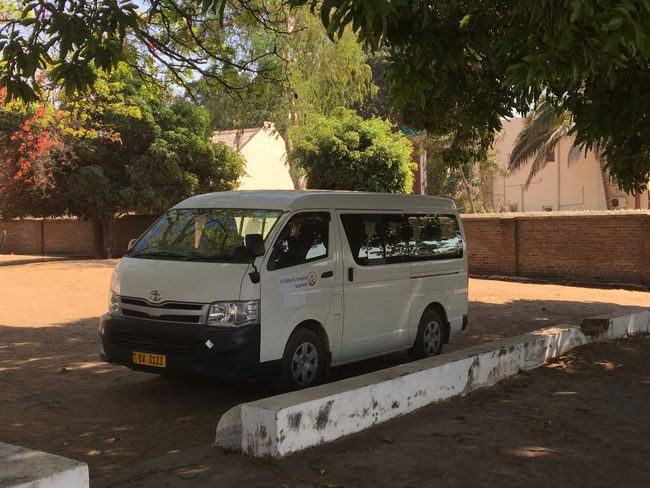
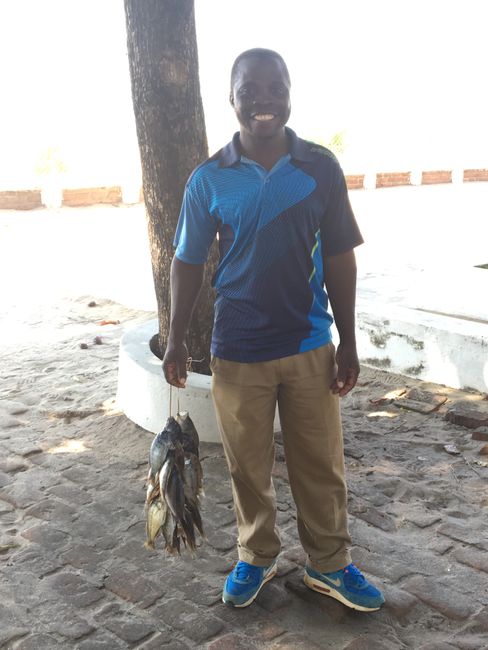
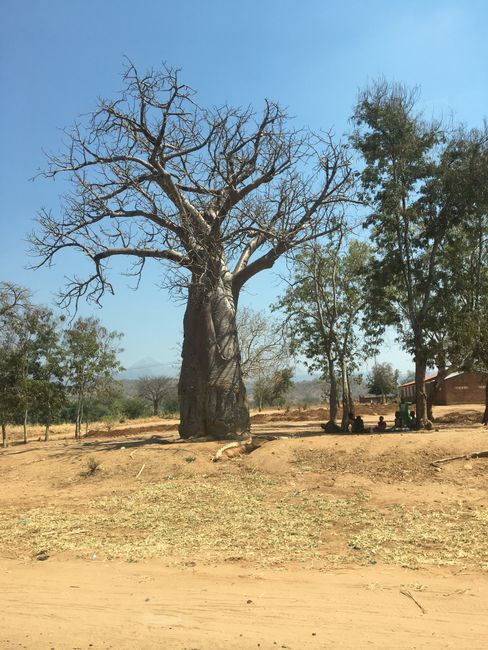
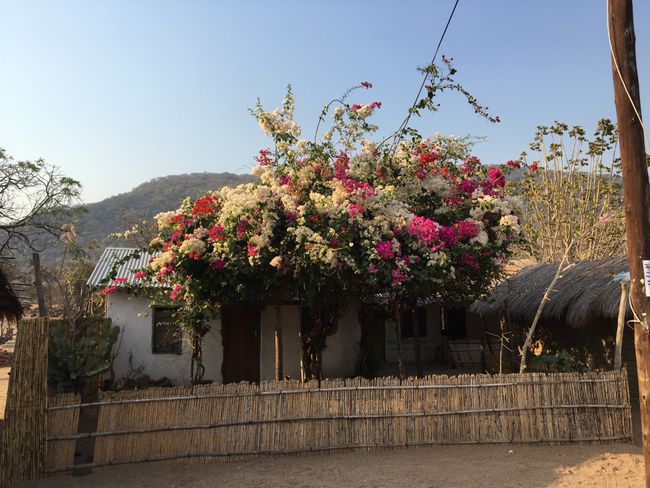
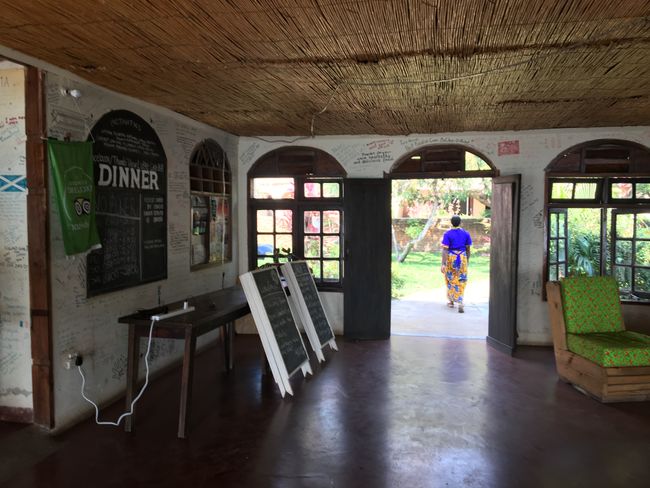
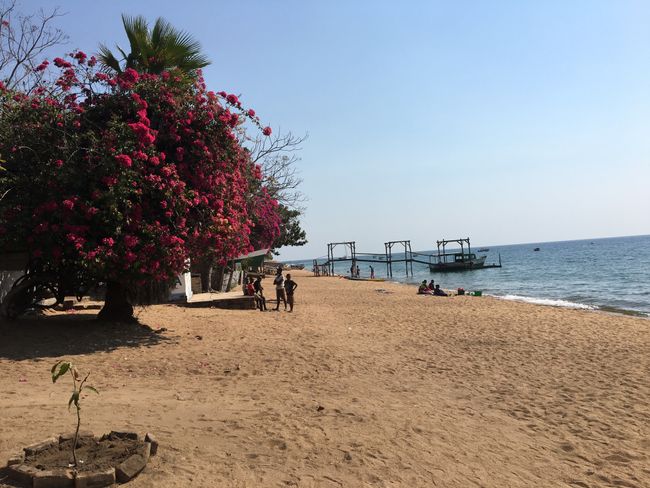
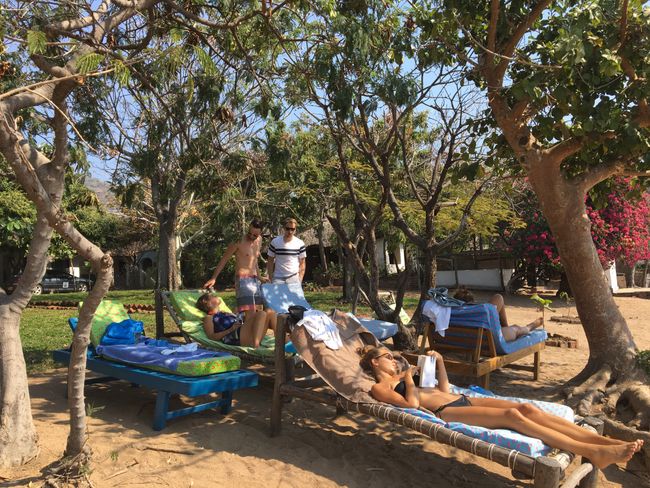
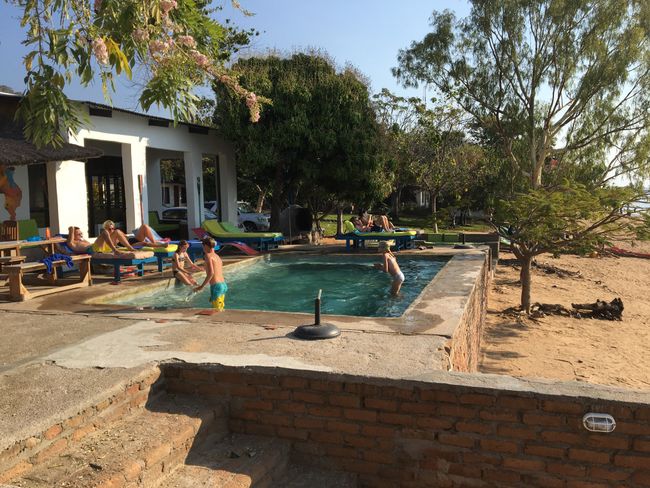
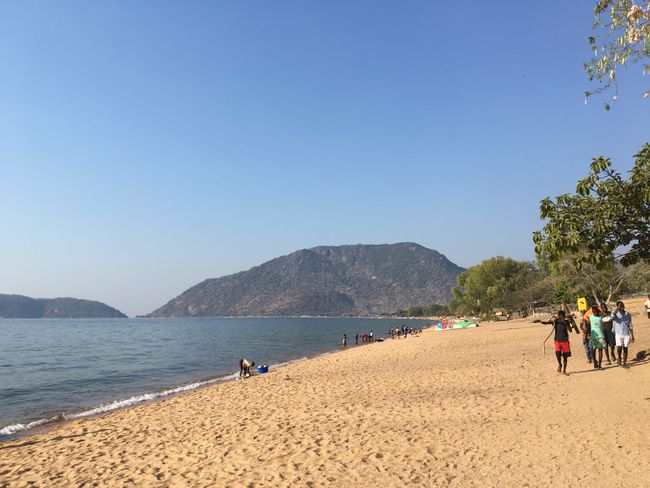
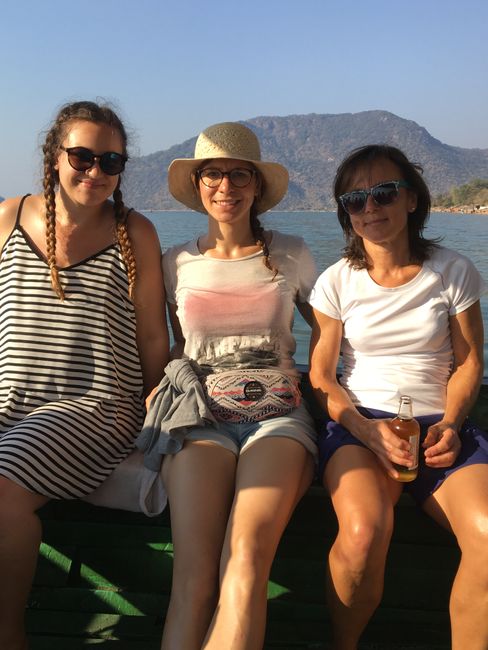
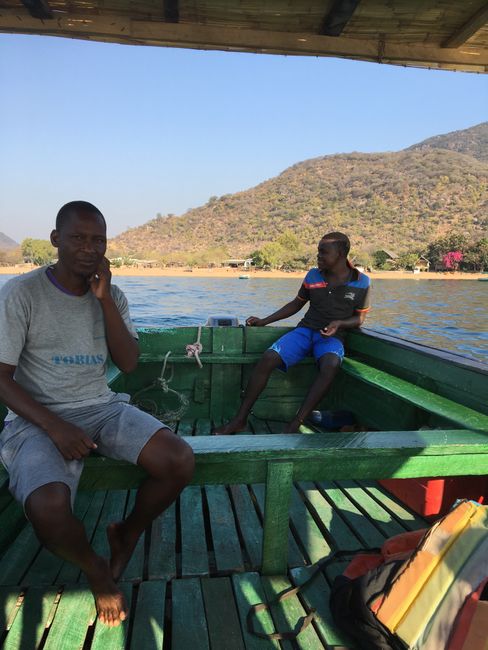
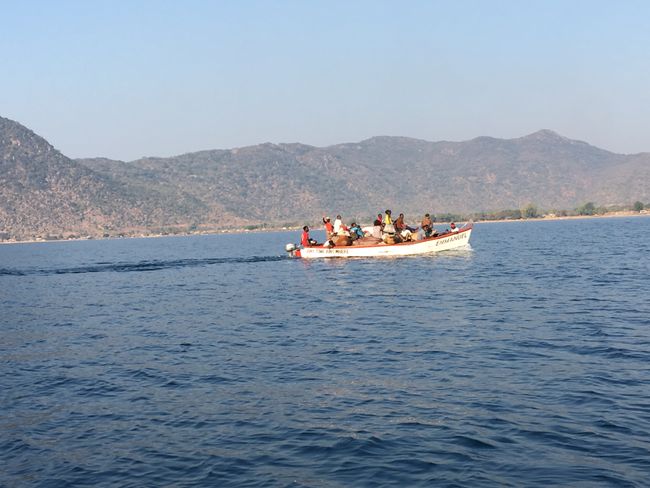
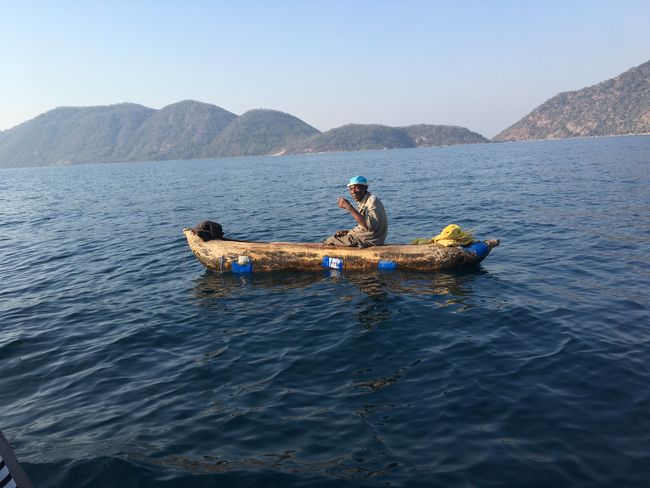
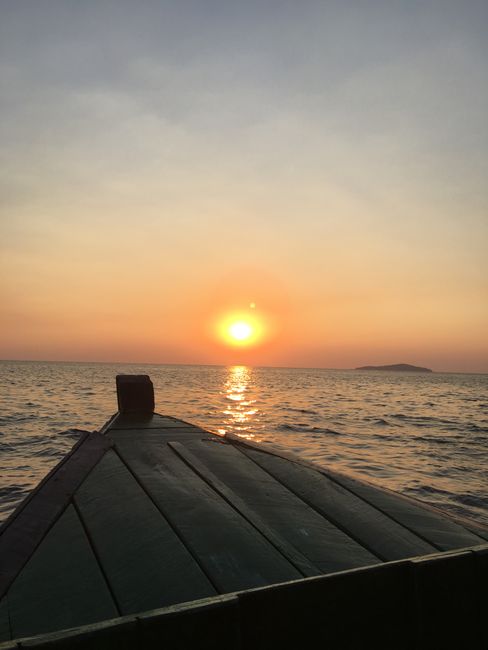
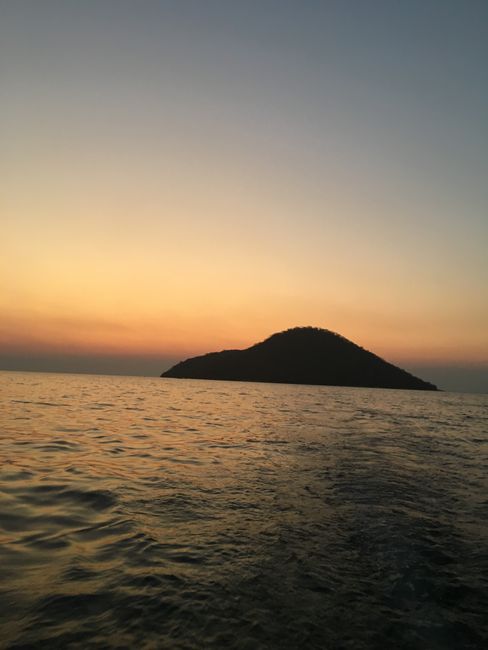
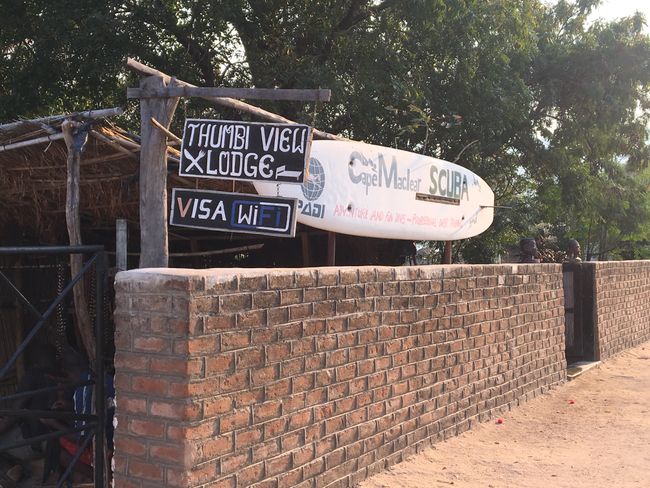
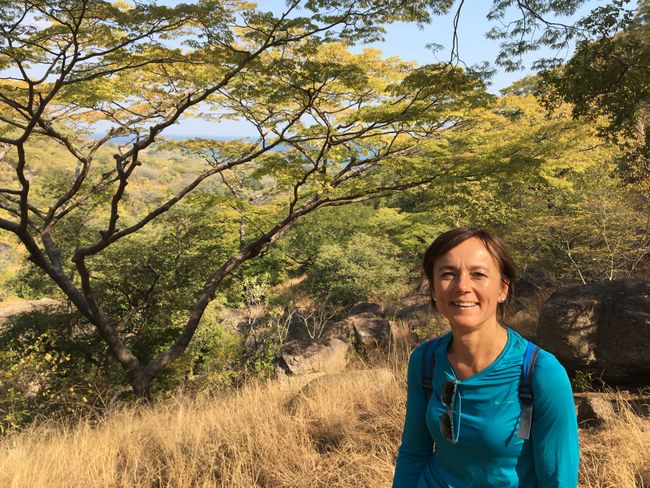
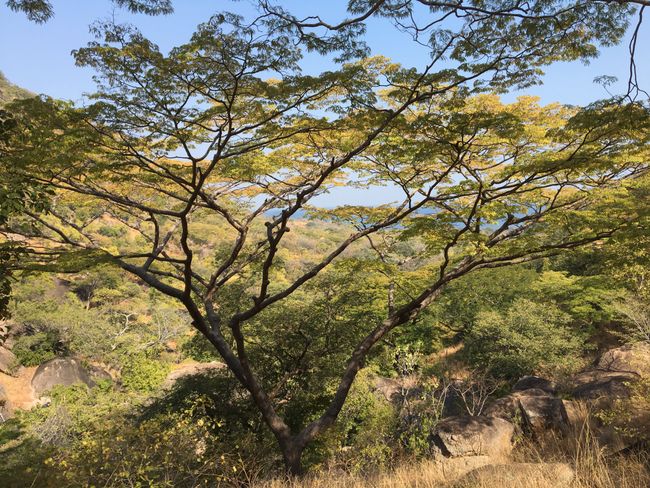
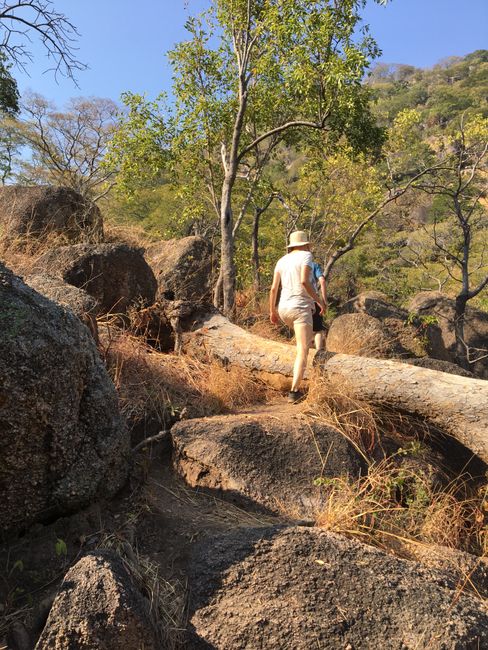
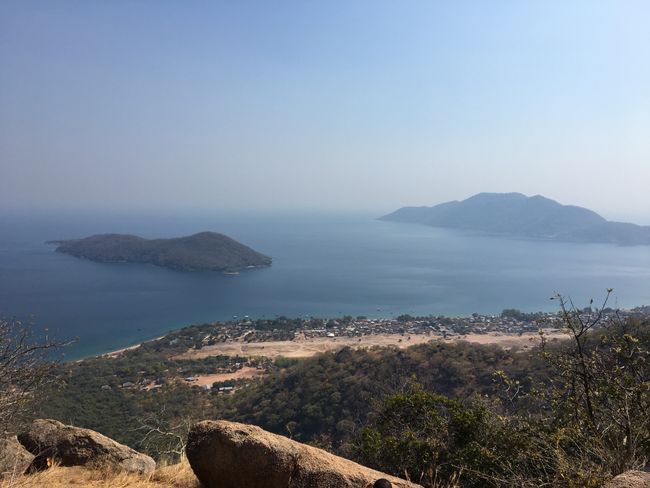
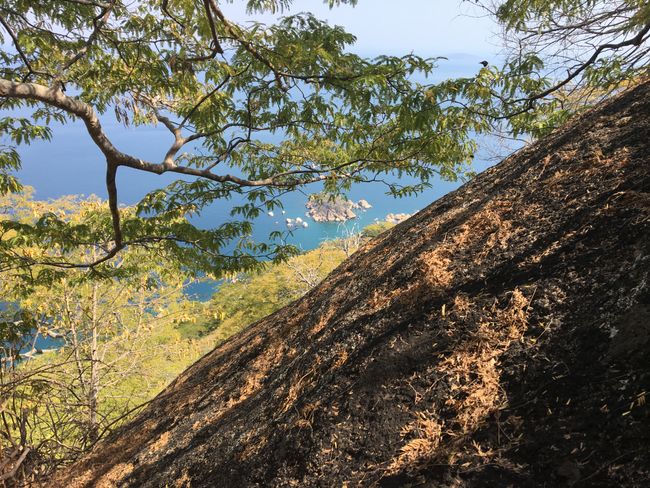
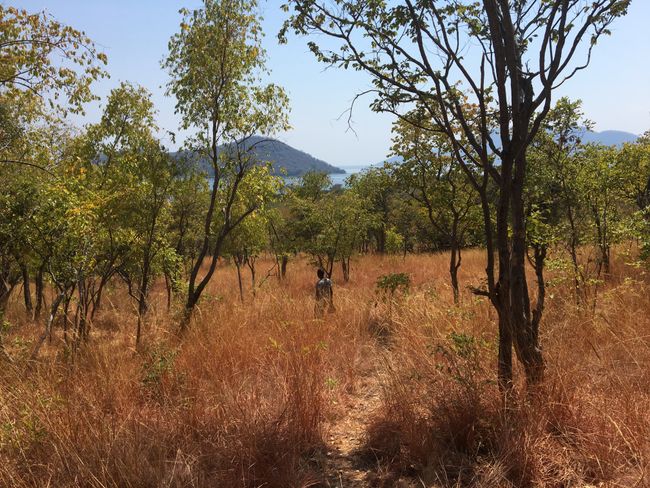
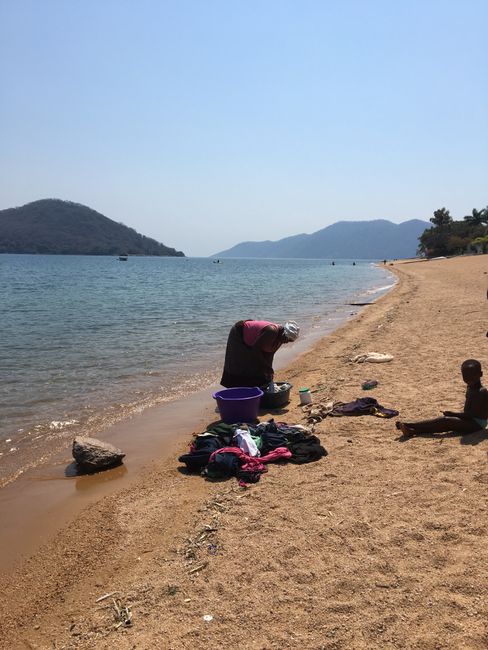
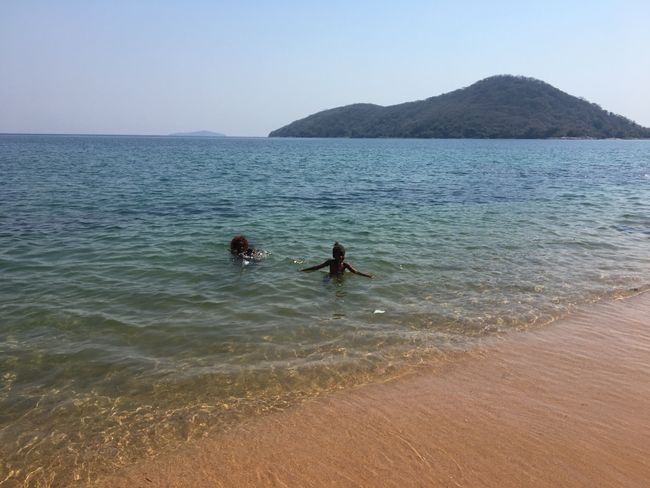
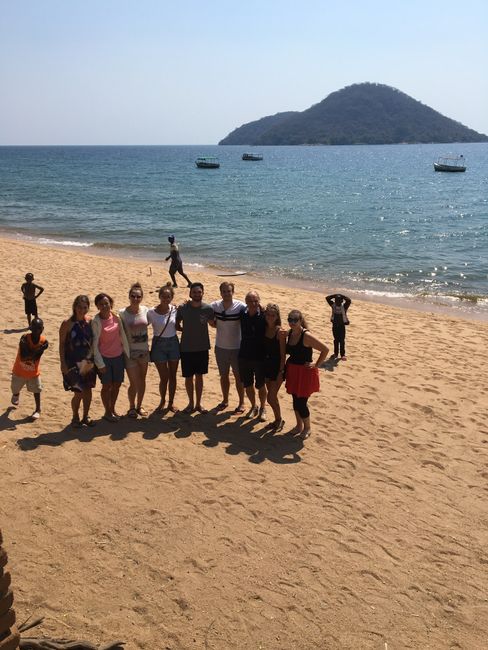
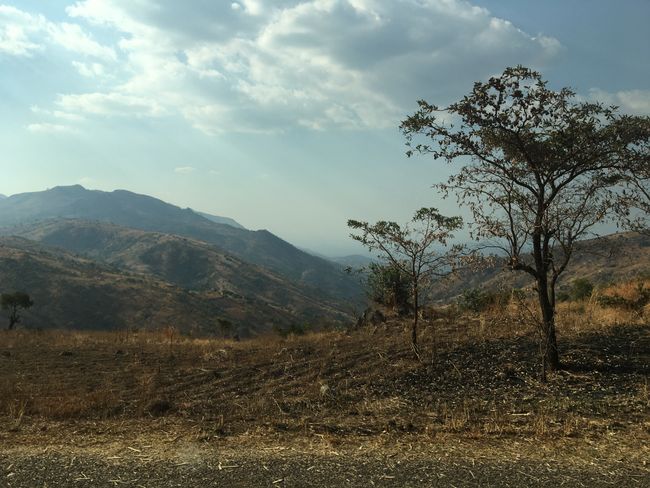
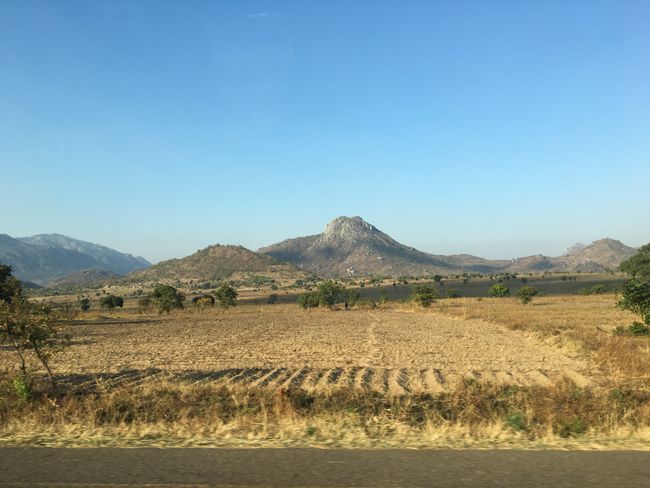
Kyerɛw wo din wɔ Newsletter no mu
On Friday, we worked until noon and then quickly ate at the Tsima Cafeteria with chicken. Tsima is the main dish here. It is made from ground maize flour, which is then boiled with water until it becomes stiff. See photo of the cafeteria.
.Es is cheap, filling, and is eaten with vegetables or chicken.
At around 2 pm, the nine of us (our team plus Ludwig, Katrin, and Marina) set off for Lake Malawi in a rented minibus with a driver. We made a brief stop at Action Medeor in Lilongwe to pick up a spare part.
Katrin had reserved a hostel in Senga Bay. When we finally arrived there, the location of the hostel was perfect but we didn't like the rooms (small, dirty, dark, etc.).
Malawi is still not very developed for tourism, although there is a travel guide with information about hotels and hostels, many of them no longer exist or are not good. There are a few expensive and good lodges, but we were looking for something affordable for students. After making a few phone calls, we finally found a lodge with 5 double rooms. We were the only guests and there were no white tourists in sight. They cooked dinner for us specially in the evening (we waited 2 hours for the food) and we could eat by candlelight on the beach. Our plan for the next day was originally to take a boat tour to Monkey Bay, but the fishing boats did not seem trustworthy.
In the morning, Ludwig and I took a long walk along the beach to the fish market.
It was very interesting to see how they catch fish with small and large boats and nets. There was a huge hustle and bustle on the beach. Fresh fish was being sold everywhere in buckets.
Even though there were no tourists here, we were frequently approached by young men on the beach who wanted to sell something or offer boat tours.
In the end, we decided to have our driver take us to Monkey Bay (Cape Maclear). it took about 2 hours, and we booked a hostel there. Cape Maclear is the most developed for tourism. However, part of the route was on an unpaved road. Cape McClear is a nature park.
The hostel was great, it even had a small pool and was right on the beach.
We slept in a dorm with bunk beds (I didn't sleep half the night because it was loud, hot, and uncomfortable).
In the evening, we took a sunset boat tour and fed fish eagles.
The next morning, Katrin, an Englishman, and I went on a 3-hour hike to a mountain with a magnificent view of Lake Malawi and the nearby islands. We saw wild monkeys (baboons) along the way. Unfortunately, I strained my thigh muscles heavily during the descent (slipped on gravel), so I had to end the hike in severe pain.
Unfortunately, Lake Malawi is not free of schistosomiasis (Bilharzia). Swimming is dangerous because you can be infected with the larvae of blood flukes, which live as intermediate hosts in freshwater snails. They penetrate healthy skin unnoticed and spread. None of us wanted to take this risk, even though the water looked very tempting and many locals were swimming and washing their laundry or dishes in the lake. In the morning, the beach was full of women doing laundry.
We were supposed to return to Namitete around 1 pm.
Our driver, who received the equivalent of 72 euros from us for the entire weekend, bought fresh fish at Senga Bay (see photos) and stored them in the hostel's refrigerator. Unfortunately, these fish could no longer be found. Someone had allegedly given them away?!?
We set off a bit late on the return journey, through the Dedza Salima Forest Reserve, through mountainous terrain.
However, the entire return journey was just a discussion about rabies. Carsten had been bitten in the nose by a dog while petting it at the hostel. The wound wasn't very deep and the dog looked normal, but Carsten hadn't been vaccinated against rabies. Rabies is a disease that always leads to death! Who guarantees that the dog is absolutely free of rabies? Carsten and all of us were torn and discussed all aspects. Doctors from St. Gabriel's Hospital were called. They said that there is no active rabies vaccination in Malawi. One would have to fly to South Africa or another developed country.
Flights were checked. No more flights to South Africa possible within the 24-hour window!!! Is a flight to Kenya possible?... can we still make it to the airport or take the very unlikely risk? Carsten had to decide alone.
In the end, even a flight to Kenya was no longer feasible timewise.
Carsten finally decided to go to the hospital in Lilongwe for advice. The good news is that the hospital in Lilongwe did have an active rabies vaccination, and Carsten and all of us were relieved. So we arrived back in Namitete slightly late but relieved.
Kyerɛw wo din wɔ Newsletter no mu
Anoyie
